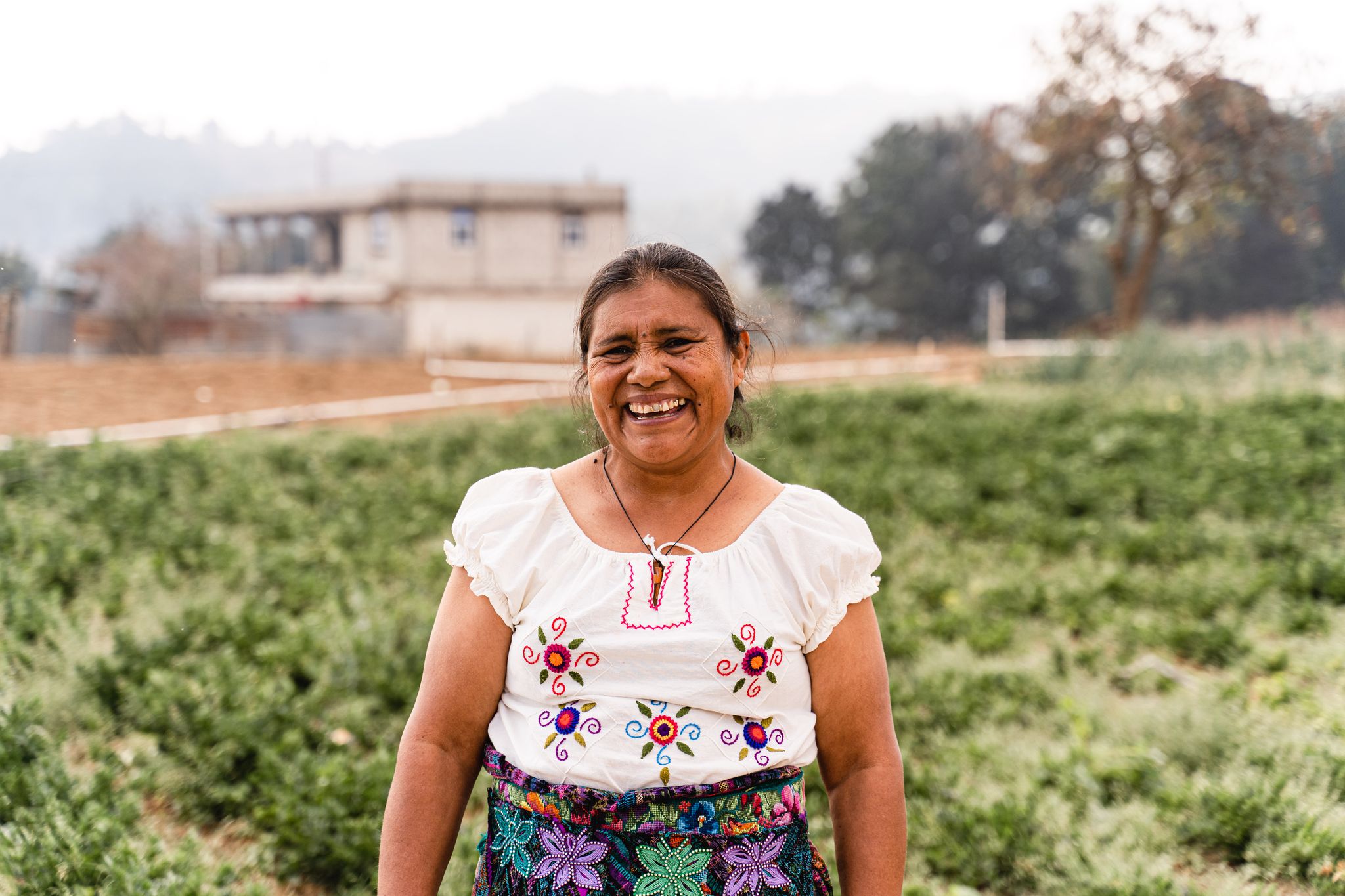Welcome to the Mobile Maternal & Infant Health Program!
We are excited to introduce the people and places that are part of this transformative work!
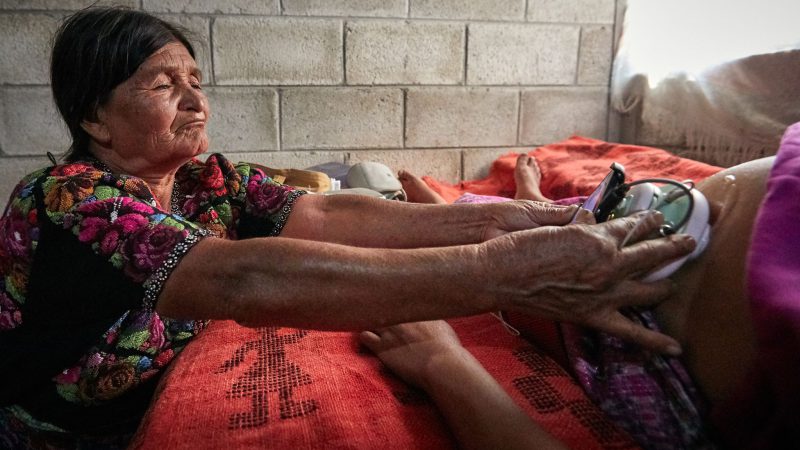
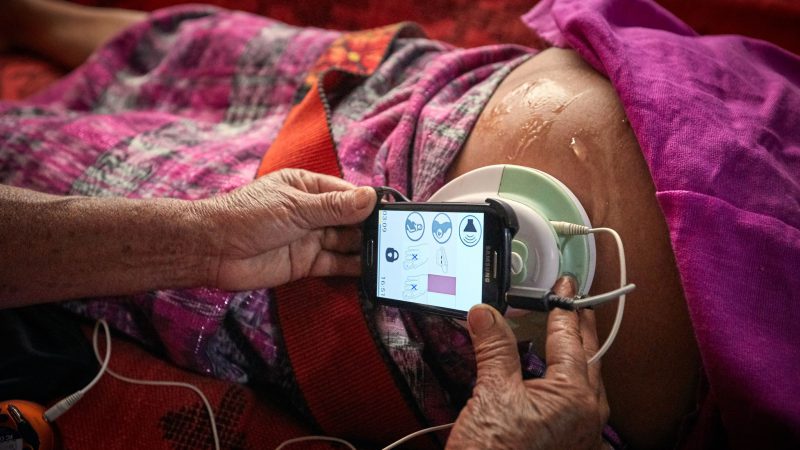
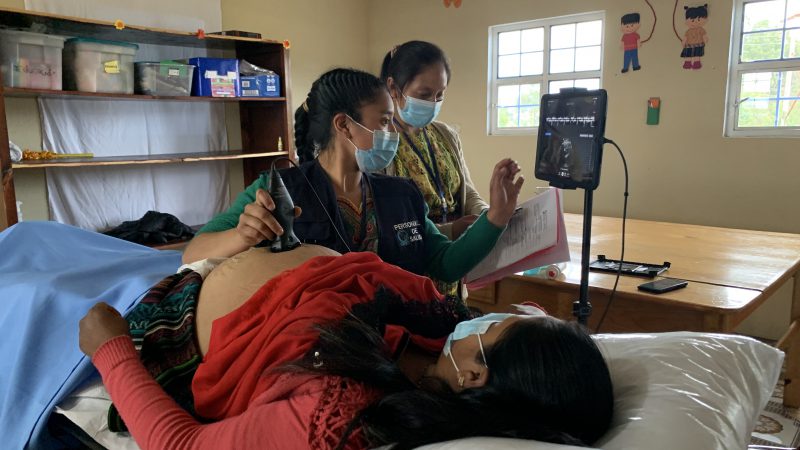
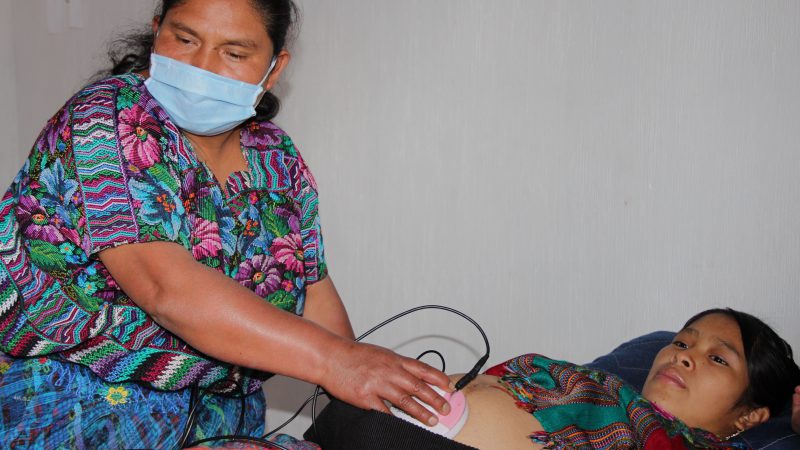
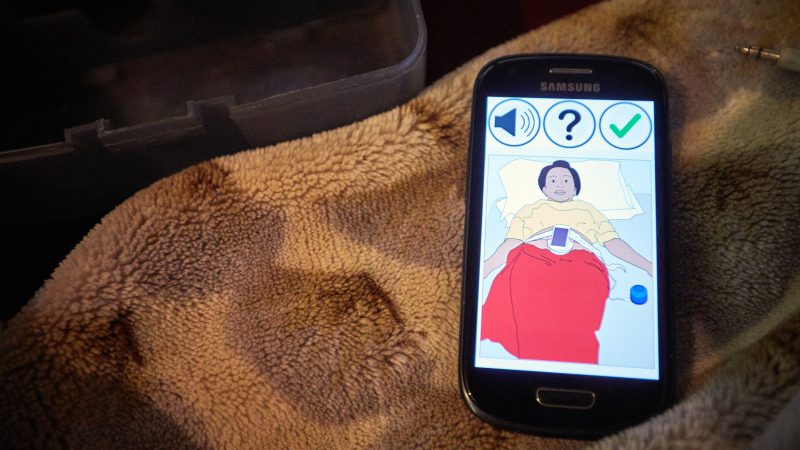
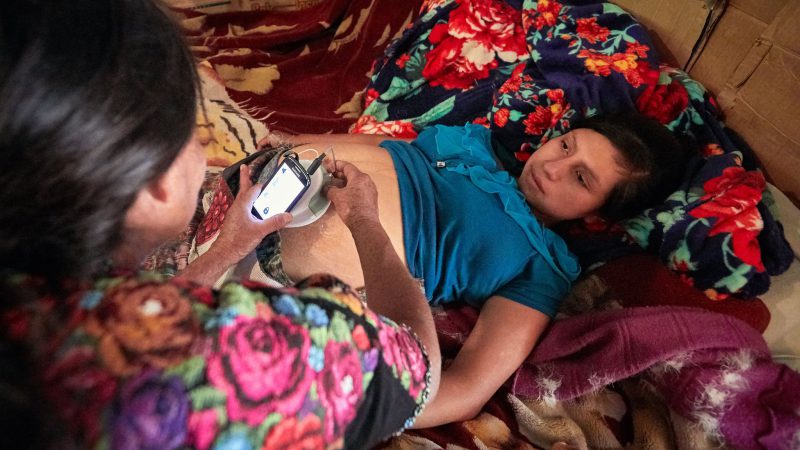
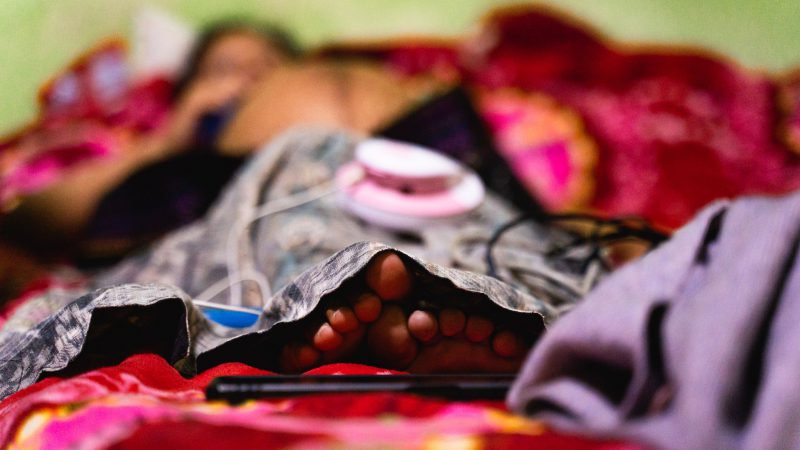
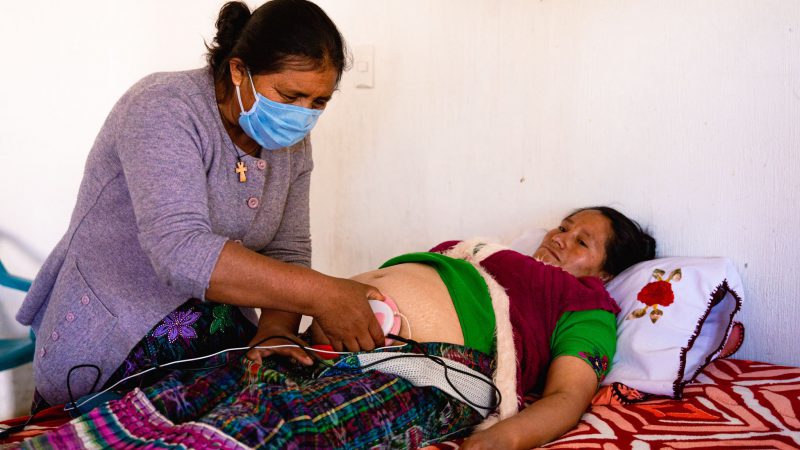
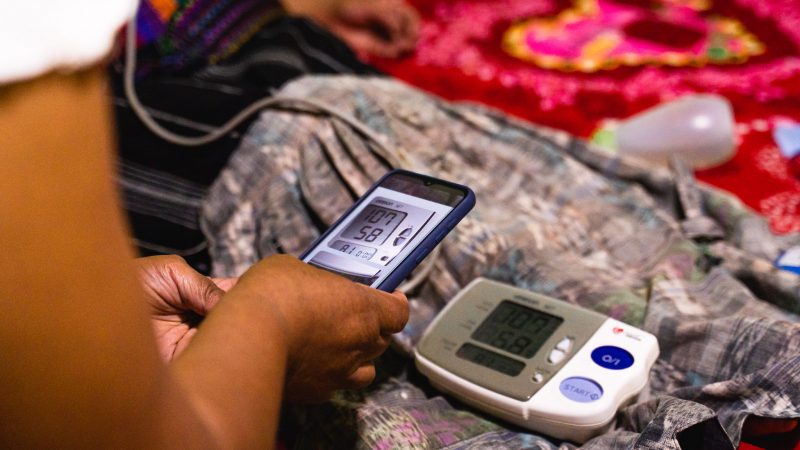
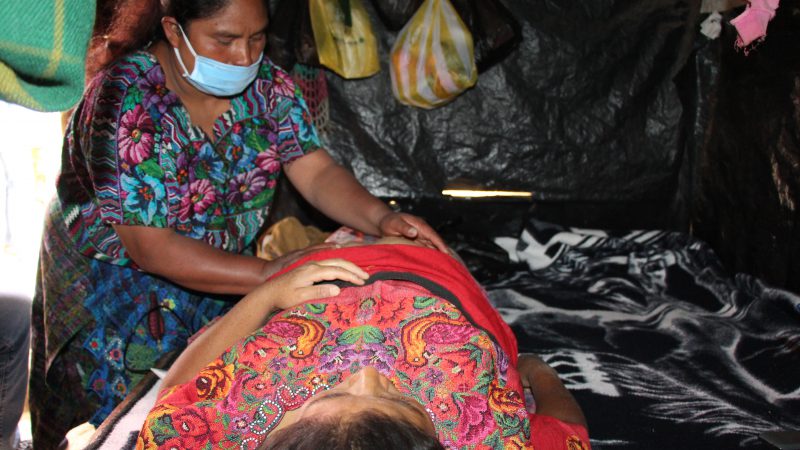
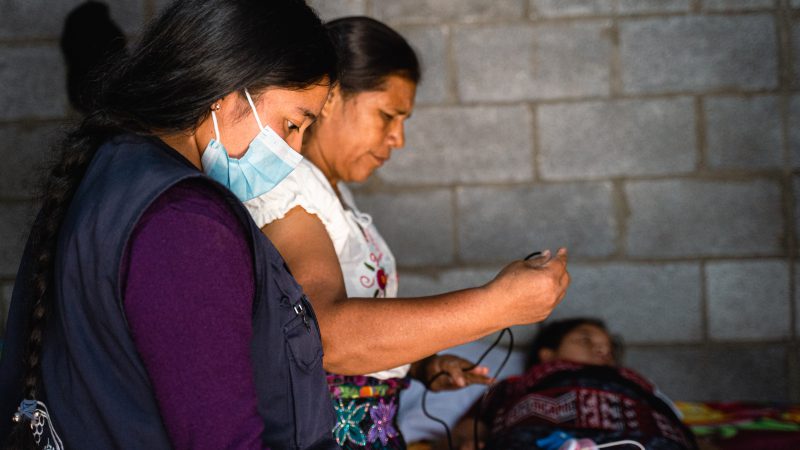
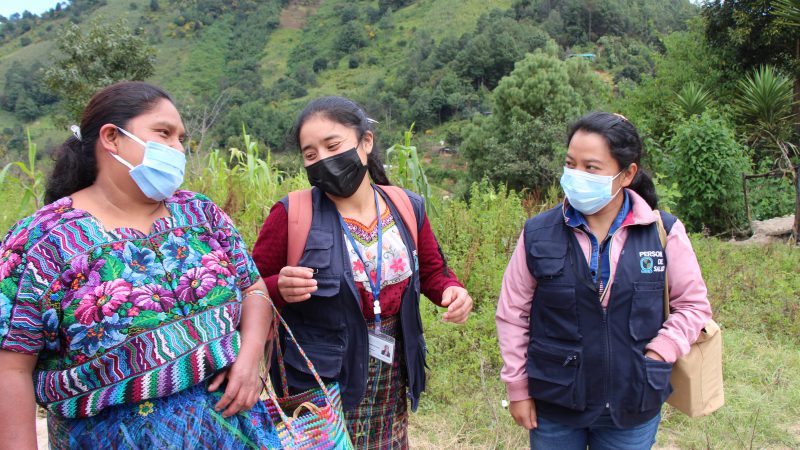
THE PROBLEM: Guatemala has one of the highest maternal mortality rates in Latin America, particularly among indigenous mothers. Most deaths from childbirth can be prevented with timely diagnosis and hospital care. But a range of barriers prevent Maya women in rural Guatemala from receiving that essential care, including language, cost, distance, and discrimination. We are eliminating these barriers.
OUR COMMUNITY-BASED SOLUTION: Working with partners safe+natal, we have co-designed a checklist-based smartphone application in partnership with traditional midwives so they are better able to monitor pregnancies and detect high-risk complications in the field. When problems arise, Wuqu’ Kawoq doctors and nurses provide clinical support. If hospital care is needed, our indigenous Maya care navigators accompany mothers throughout, coordinating, translating, supporting, and advocating for moms, and ultimately fostering more positive hospital birth experiences for all involved.
THE IMPACT: Since the Mobile Maternal & Infant Health Program began in 2017, hospital births among the approximately 800 mothers attended annually by participating midwives have increased by more than 50%. Maternal deaths have dropped from 8 a year to 0-3 a year.
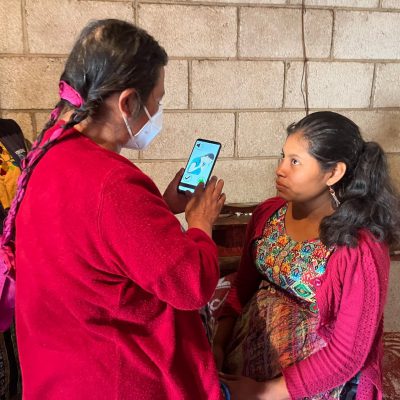
The Communities Where We Work
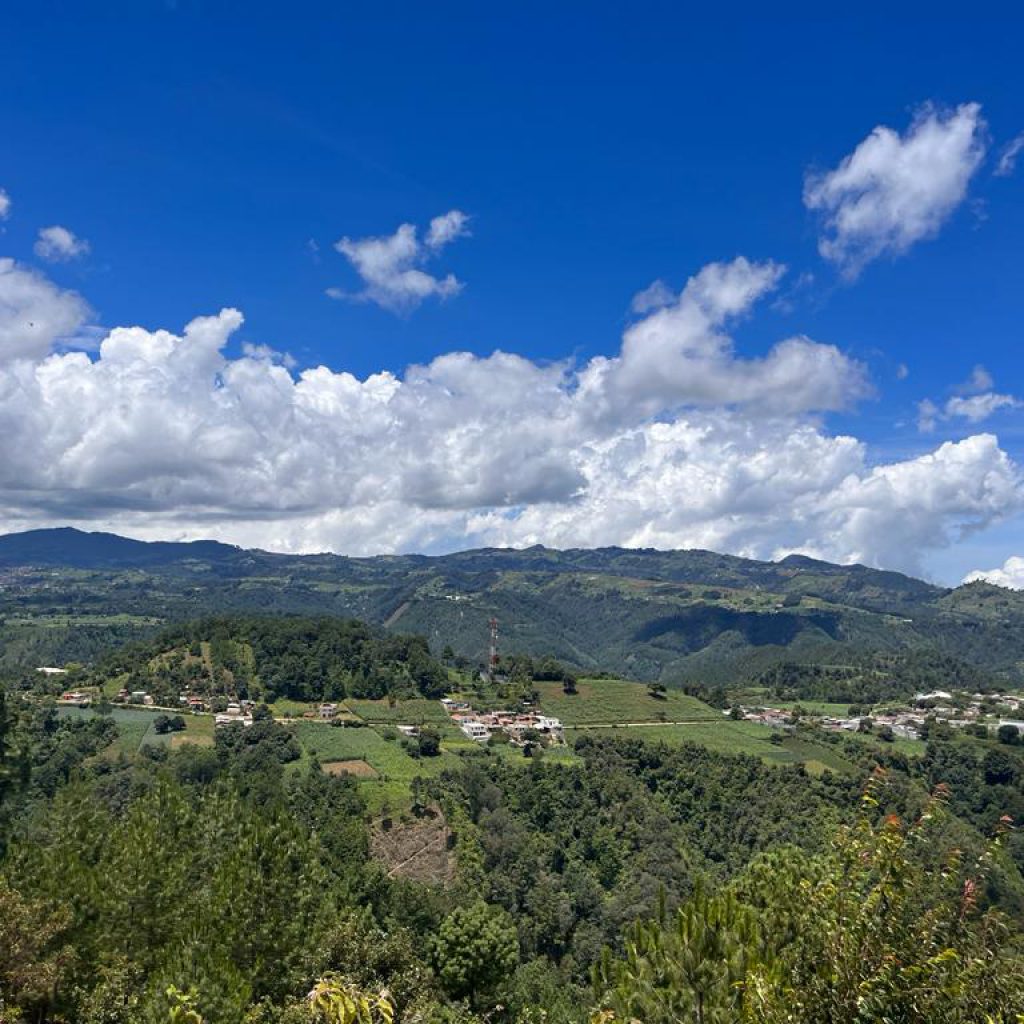
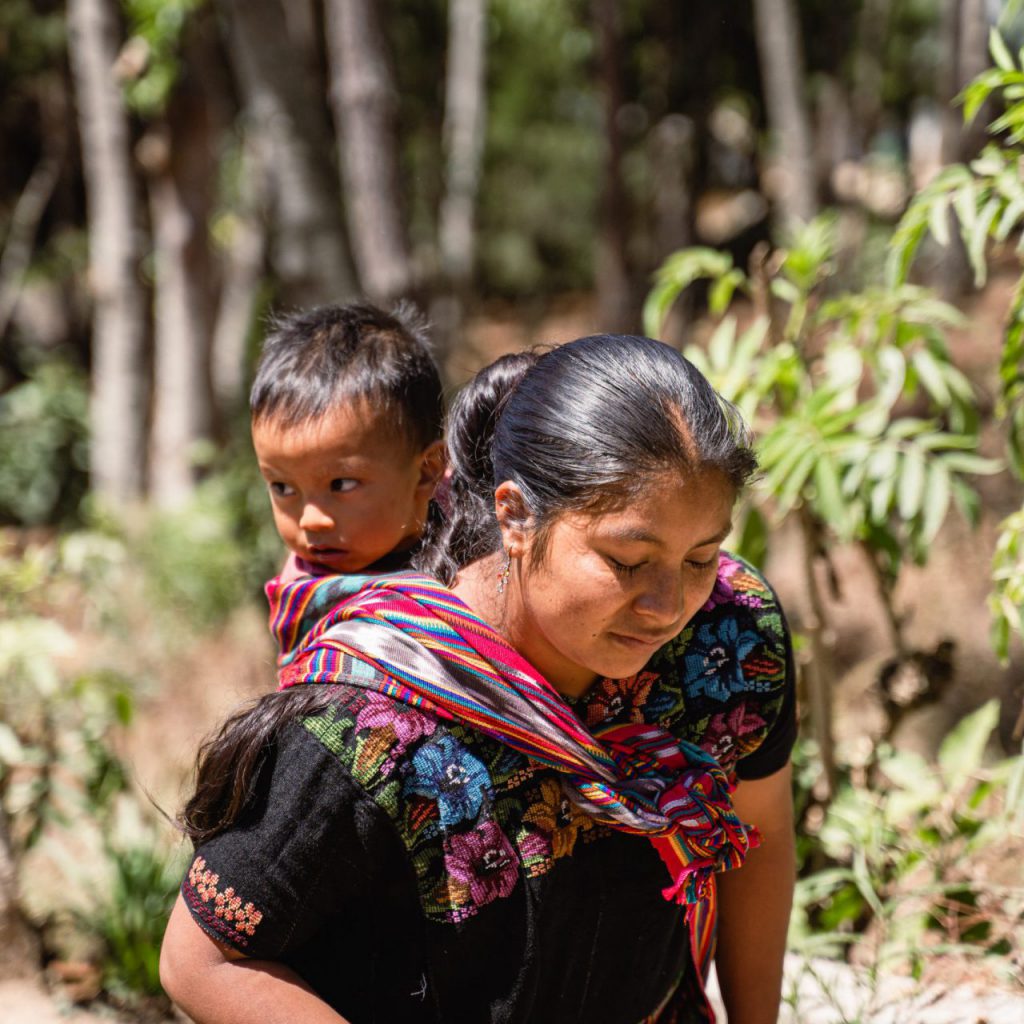
Healing and Building Trust in Tecpán
Midwives and care navigators in the Mobile Maternal & Infant Health Program provide care in more than 50 rural, Maya Kaqchikel communities surrounding the city of Tecpán. The majority of men in the region work in the fields growing crops for export. Most women work at home. More than 70% of the population lives in poverty, compared to the national average of about 54%.
During Guatemala’s 36-year civil war, the residents of Tecpán were caught between the government military and the guerillas, accused of belonging to one group or the other. Many people lost family members, land, and livelihoods. Although the war formally ended in 1996, the residual effects, including fear and mistrust, linger.
Because most of our team are from the communities we serve, and because of our long record of proven, high-impact programs like Mobile Maternal Health, our team is able to forge partnerships with local midwives and health and municipal leaders. These partnerships are key to our programs’ success.
Stop in for a Virtual Visit!
Enjoy a video tour of the vibrant Maya Kaqchikel communities surrounding Tecpán, Chimaltenango where the Mobile Maternal Health Program currently operates.
Scaling Impact
We aim to scale the life-saving benefits of this program to serve additional Mayan language groups and health districts.
We’re focused on areas with the greatest need and strongest potential for success. The regions targeted for expansion have significant indigenous Maya populations and some of the highest maternal mortality rates in Guatemala. For details on these regions, please mouse over the map at right.
Midwife Partners
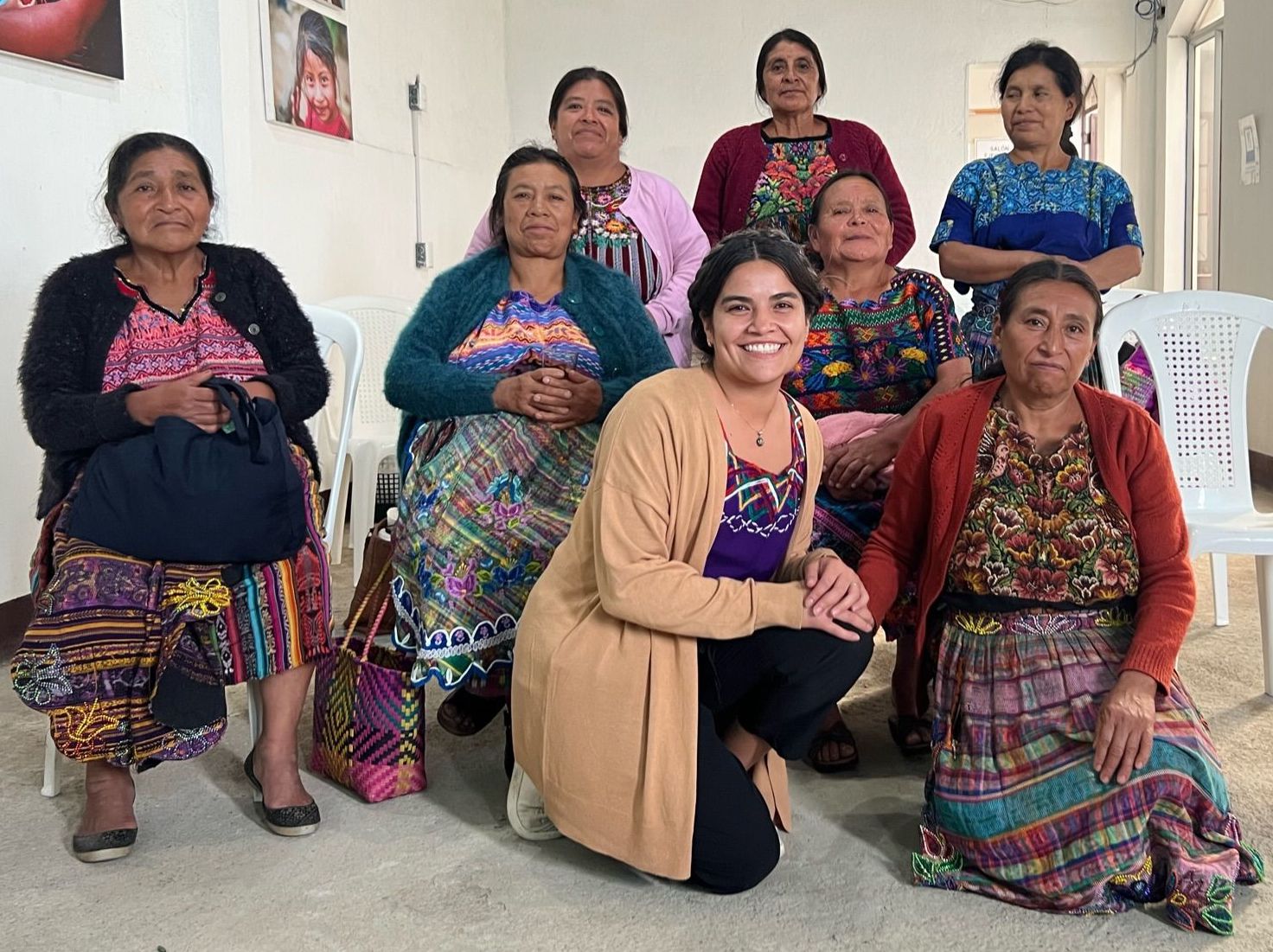
Most Maya women in rural Guatemala give birth at home with traditional midwives. These trusted caregivers have deep community roots and benefit from generations of experience. Historically, midwives have been shut out of the public health system, blamed for patients’ problems rather than accepted as partners in maternal care. The Mobile Maternal & Infant Health Program is repairing breaks in the care referral chain by providing midwives with the training and tools they need to identify problems early and refer mothers for timely care. We currently collaborate with 40 midwives who cover 800 births a year.
Meet Some of Our Midwife Partners!
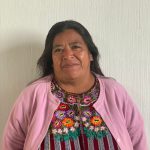
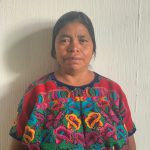
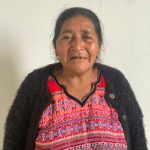
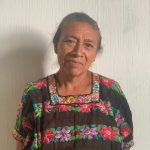
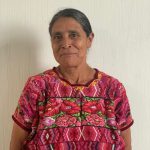
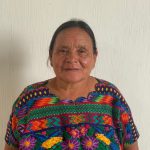
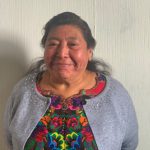
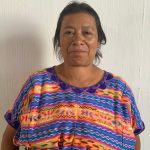
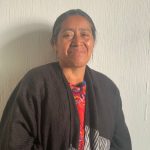
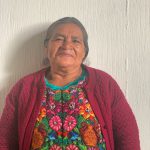
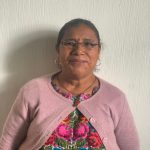
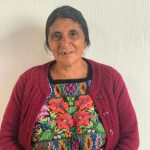
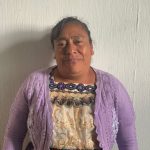
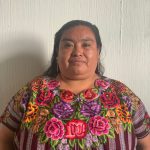
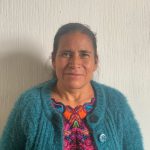
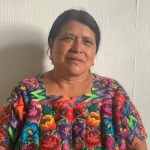
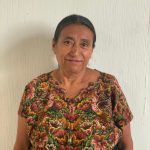
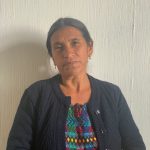
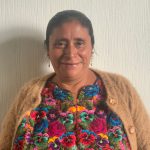
Care Navigators
Care Navigators are the heart of the Mobile Maternal & Infant Health Program. When patients need hospital care, navigators provide coordination, translation, advocacy, and support. They arrange for transportation and childcare. They make sure patients bring the medical records they need for hospital admission. They negotiate to ensure families are not charged inflated prices for out-of-pocket services. They stand up for mothers to make sure they receive respectful care, and literally hold patients’ hands through delivery.
Meet our devoted care navigators!
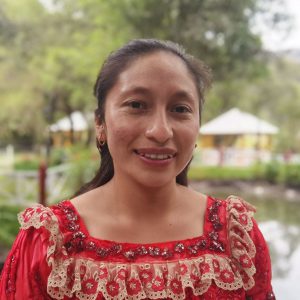
Cecia Chonay, Care Navigator
Cecia was born, raised, and still lives in the village of Xetzac. She is very close to her family and loves spending time together on the weekends. She speaks Maya Kaqchikel and Spanish. She graduated from high school as an expert in drawing. In 2018, she joined Wuqu’ Kawoq to help rural Guatemalans work through the complexities of the local healthcare system. As a patient navigator with the Mobile Maternal Health program, she is grateful for patients’ trust and confidence and is deeply satisfied to have work that helps save lives.
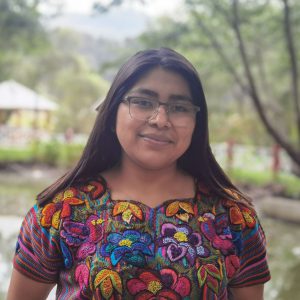
Claudia Cumes Bal, Care Navigator
Claudia is from the community of Paxorotot. She learned about Wuqu’ Kawoq in 2017 when she experienced complications in her first pregnancy. A care navigator from the Mobile Health Program helped her overcome her fears and access the hospital services she needed. Inspired by that experience, she the team in 2018 as a care navigator to help other mothers feel safer and more confident seeking and receiving care in hospitals, where they may face difficulties such as language, machismo, and unfamiliarity with the system. She is married with two children. She speaks Kaqchikel and Spanish.
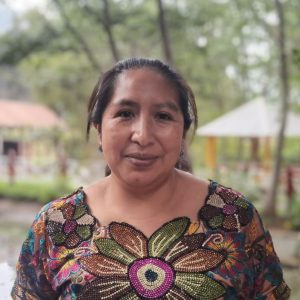
Irma Yolanda Velasquez Matias, Care Navigator
Irma was born in the village of Vista Bella outside Tecpán. She graduated high school and joined Wuqu’ Kawoq in 2017 as a care navigator. She speaks Kaqchikel and Spanish. She values having an opportunity to help rural communities in her country. In her free time, she likes listening to music and spending time with her two sons and two daughters.
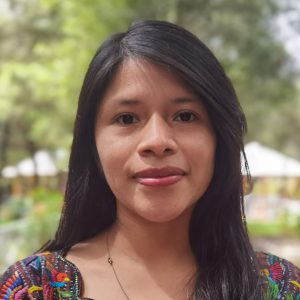
Irma Yolanda Pilo, Mobile Maternal Health Program Manager
Irma is originally from Sololá and currently lives in Tecpán. She is an Early Childhood Education Teacher and professional nursing technician. She studied nursing in college. In 2021, she joined Wuqu’ Kawoq as a nutrition technician and recruiter in the Saqmoló (Egg) Project. In February 2023, she became manager of the Mobile Maternal Health Program. She admires the respect that the team offers in supporting rural communities in Guatemala, regardless of language or origin.
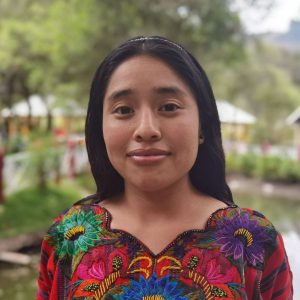
Rosibely Sut, Mobile Maternal Health Program Coordinator
Rosibely was born in the Kaqchikel village of Chuatzunuj, Tecpán. She graduated as an accountant, but yearned to contribute more to her community. So she joined our team as one of our first Care Navigators (Chajinel en Kaqchikel). She deeply understands the situation rural indigenous women confront and puts her heart and soul into her work. She was promoted to Program Coordinator and now works with midwives, providing training on the cell phone app, high risk pregnancy signs, and a new application for identifying infants in danger in the first days of life.
The Mobile Maternal & Infant Health Program in Action
Watch these videos to find out more about how our midwife partners and care navigators are helping indigenous women access timely maternal care.



